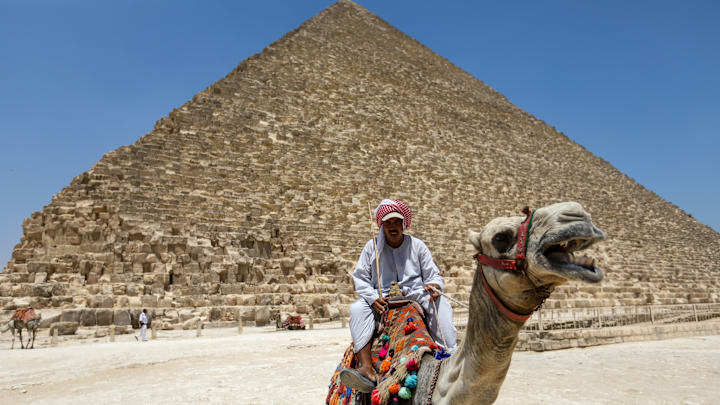The Legacy of the Ancient Egyptians

One of the most iconic aspects of ancient Egyptian civilization is its monumental architecture. The pyramids, particularly the Great Pyramid of Giza, are among the most enduring symbols of human ingenuity and engineering prowess. These colossal structures, built as tombs for pharaohs, demonstrate the Egyptians' advanced understanding of mathematics, astronomy, and construction techniques. The temples of Karnak and Luxor, with their grand columns and intricate carvings, showcase the Egyptians' skill in architecture and their devotion to their gods.
The art of ancient Egypt, characterized by its distinctive style and symbolism, has had a lasting influence on artistic traditions. Egyptian art was highly stylized and adhered to strict conventions, depicting figures in a manner that emphasized order and continuity. The use of hieroglyphs, a writing system combining logographic and alphabetic elements, not only served as a means of communication but also as an art form in itself. The vivid wall paintings, statues, and reliefs found in tombs and temples provide a window into the daily life, beliefs, and practices of the ancient Egyptians.
The religious beliefs and practices of the ancient Egyptians had a profound impact on their culture and way of life. The Egyptians believed in a complex pantheon of gods and goddesses, each associated with different aspects of life and the natural world. The concept of the afterlife was central to their religion, leading to elaborate burial practices and the construction of tombs filled with goods for the deceased's journey to the afterlife. The Book of the Dead, a collection of spells and incantations, was intended to guide the deceased through the underworld and ensure their safe passage.
In addition to their religious and artistic achievements, the ancient Egyptians made significant advancements in science and medicine. Their understanding of astronomy allowed them to develop a calendar based on the solar year, which was remarkably accurate and influenced later civilizations. In medicine, the Egyptians practiced a variety of surgical techniques and developed remedies for various ailments, many of which were recorded in medical texts such as the Ebers Papyrus. Their knowledge of anatomy and practical medical procedures laid the groundwork for future developments in the field.
The ancient Egyptians also made notable contributions to mathematics and engineering. They developed a system of mathematics that included addition, subtraction, multiplication, division, and the use of fractions. This mathematical knowledge was essential for architectural projects, land surveying, and the administration of resources. The construction of irrigation systems to control the flooding of the Nile and ensure agricultural productivity is a testament to their engineering skills and understanding of hydraulics.
The legacy of ancient Egypt extends beyond its borders and has influenced various aspects of Western civilization. The fascination with ancient Egypt, known as Egyptomania, has persisted through the centuries, inspiring art, literature, and architecture in Europe and America. The decipherment of hieroglyphs by Jean-François Champollion in the 19th century opened the door to a deeper understanding of Egyptian culture and history, further fueling interest and admiration for this ancient civilization.
In conclusion, the legacy of the ancient Egyptians is rich and multifaceted, encompassing monumental architecture, artistic achievements, religious beliefs, and scientific advancements. Their contributions have left an indelible mark on human history and continue to inspire and captivate people around the world. The enduring fascination with ancient Egypt is a testament to the remarkable achievements of this civilization and its lasting impact on our cultural heritage.